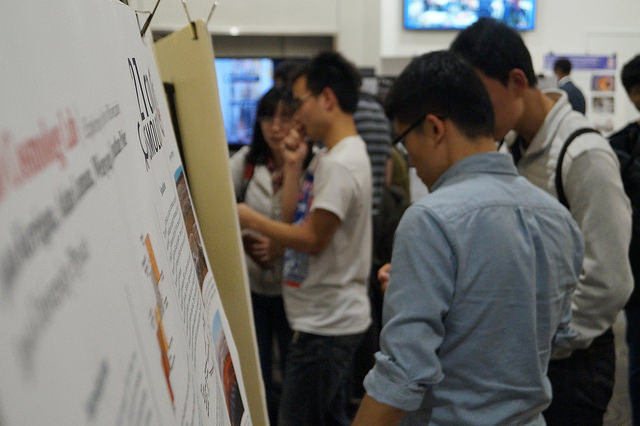Find a Research Group
Standard Timeline for Joining a Research Group
The standard model for the first two years in the Ph.D. program is as follows:
Year 1
Complete 6 core courses (PHYS 2010, 2030, 2040, 2050, 2060, 2140) and work toward joining a research group.
Summer between Year 1 and Year 2
Work on a project for, or begin research with, a potential research advisor.
Year 2
Pass comprehensive exam at beginning of the second year and continue or begin research; complete any core courses not done in the first year; complete 2 advanced courses; complete 2nd Year Ethics Training mid-year, and identify prelim committee by end of academic year.
A student’s specific path may deviate from this model based on individual circumstances and background, but the above model should be adhered to as much as is possible and appropriate.
 By mid-April of the first year, each student should have a research plan for the first summer and, hopefully, for the next academic year. Let the Student Affairs and Programs Manager know when you have reached an agreement with a particular faculty member for research support.
By mid-April of the first year, each student should have a research plan for the first summer and, hopefully, for the next academic year. Let the Student Affairs and Programs Manager know when you have reached an agreement with a particular faculty member for research support.
A student who has been successful in securing a research affiliation for the second year should register for a research course in the section specific to the research advisor (PHYS 2980 - Research in Physics) unless advised differently by the research advisor.
A student who has not been successful in securing a research affiliation for the second year is required to make arrangements for at least one reading course (PHYS 2710 - Seminar in Research Topics) with a potential research advisor beginning in the Fall semester. If the reading course is not successful in yielding a research position, the student must continue to arrange reading courses until a suitable match is found.
Tips for Finding a Research Advisor/Group
Finding a research advisor/group takes effort and exploration. Students are strongly encouraged to think about, and begin working toward, entering a group during the first semester of their first year. There are multiple tools available:
- Areas of research department web pages
- Department colloquia and seminars
- Grad student coffee hour and community mentors
- Department Poster Session (scheduled for the first week in November annually)
- First year advisors
- First Year Student Seminar
- Conversations with individual faculty and students
Students are advised to keep an open mind about the field of research, even about experiment versus theory, and about career options, thus:
- You may not have a clear picture of what research is really like in all of the various fields of physics at Brown, so the process of seeking a research group will be educational in itself. You could find that you are eventually drawn to something which surprises you.
- Your career path will be shaped by many factors, only some of which you can control. For instance:
- At any given time, there may not be openings in the exact area that you believe you favor.
- If you are sure that you prefer an academic career over an industrial one after your PhD, the market opportunities upon your completion might not fit your plans.
Some other things to remember:
- Everyone you approach need not be your prospective research advisor.
- Seek advice from those faculty and advanced students that you know best or whose research you find most compelling.
- Gather your data first-hand; do not rely on hearsay or what others tell you particular faculty members or students have told them.
- The funding situation for individual groups may change; the best way to stay abreast of these developments is through the individual faculty themselves and through the Student Affairs and Programs Manager, who may send out periodic updates regarding research groups with potential openings.